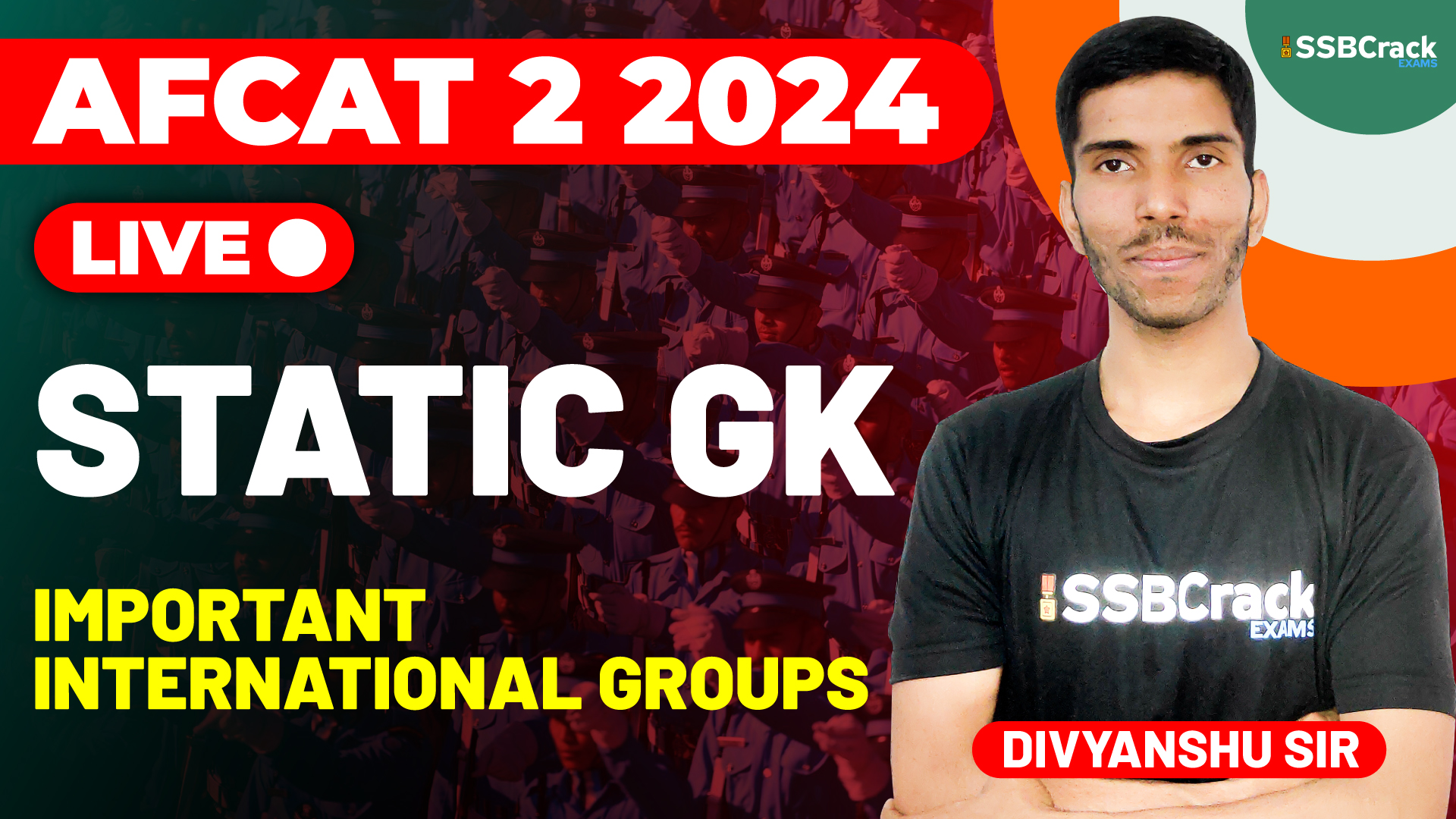Understanding various international groups and their significance is crucial for AFCAT 2 2024 aspirants. These groups play vital roles in global politics, economics, security, and cooperation. Here’s an overview of some important international groups: NATO, I2U2, BRICS, SAARC, BIMSTEC, ISA, and QUAD, which are essential for the AFCAT 2 2024 exam.
AFCAT 2 2024 Exam Static GK Important International Groups
North Atlantic Treaty Organization (NATO)
Introduction
NATO, established on April 4, 1949, is a military alliance formed to ensure mutual defense against aggression. It consists of 31 member countries from North America and Europe.
Objectives
- Collective Defense: Article 5 of the NATO treaty states that an armed attack against one member is considered an attack against all.
- Crisis Management: NATO manages crises to prevent conflicts from escalating and to restore peace and stability.
- Cooperative Security: NATO promotes security through partnerships and cooperation with non-member countries.
Key Activities
- Military Operations: NATO conducts military operations, such as in Afghanistan (International Security Assistance Force) and Libya (Operation Unified Protector).
- Partnerships: NATO has partnerships with countries and organizations around the world to enhance security cooperation.
I2U2
Introduction
I2U2 is a new international grouping involving India, Israel, the United Arab Emirates (UAE), and the United States. It aims to harness the unique capabilities and resources of these countries for mutual benefit.
Objectives
- Economic Cooperation: Foster economic partnerships and joint investments in various sectors, including technology, infrastructure, and energy.
- Innovation and Technology: Promote innovation and technological collaboration among member countries.
Key Activities
- Joint Projects: Initiatives in areas such as water, energy, transportation, and space technology.
- Economic Dialogues: Regular high-level meetings to discuss economic and technological cooperation.
BRICS
Introduction
BRICS is an association of five major emerging economies: Brazil, Russia, India, China, and South Africa. It was established in 2009 to promote economic, political, and cultural cooperation.
Objectives
- Economic Growth: Enhance economic cooperation and development among member countries.
- Political Coordination: Promote political dialogue on international issues and reforms in global governance institutions.
Key Activities
- BRICS Summit: Annual meetings of heads of state to discuss cooperation and global issues.
- New Development Bank (NDB): A multilateral development bank established to finance infrastructure and sustainable development projects in BRICS and other emerging economies.
South Asian Association for Regional Cooperation (SAARC)
Introduction
SAARC, established on December 8, 1985, is a regional intergovernmental organization comprising eight South Asian countries: Afghanistan, Bangladesh, Bhutan, India, Maldives, Nepal, Pakistan, and Sri Lanka.
Objectives
- Regional Integration: Promote regional cooperation and integration in South Asia.
- Economic and Social Development: Enhance economic growth, social progress, and cultural development in the region.
Key Activities
- SAARC Summit: Biennial meetings of heads of state or government to discuss regional issues and cooperation.
- SAARC Development Fund (SDF): Financial institution to support regional development projects.
Bay of Bengal Initiative for Multi-Sectoral Technical and Economic Cooperation (BIMSTEC)
Introduction
BIMSTEC, established on June 6, 1997, is a regional organization comprising seven countries from South Asia and Southeast Asia: Bangladesh, Bhutan, India, Nepal, Sri Lanka, Myanmar, and Thailand.
Objectives
- Economic Cooperation: Promote economic cooperation and integration in the Bay of Bengal region.
- Technical and Cultural Exchange: Enhance technical and cultural cooperation among member countries.
Key Activities
- BIMSTEC Summit: Regular meetings of heads of state or government to discuss cooperation and development.
- BIMSTEC Free Trade Area (FTA): Initiatives to establish a free trade area to boost intra-regional trade.
International Solar Alliance (ISA)
Introduction
ISA, launched on November 30, 2015, is an alliance of 121 countries, most of which lie between the Tropic of Cancer and the Tropic of Capricorn. It aims to promote solar energy and reduce dependence on fossil fuels.
Objectives
- Solar Energy Promotion: Promote the use of solar energy to meet energy needs and reduce carbon emissions.
- Technology and Finance: Facilitate the transfer of technology and mobilize financial resources for solar projects.
Key Activities
- Solar Projects: Support and implement solar energy projects in member countries.
- Capacity Building: Provide training and capacity-building programs for member countries.
Quadrilateral Security Dialogue (QUAD)
Introduction
QUAD is an informal strategic dialogue between the United States, Japan, India, and Australia. It aims to promote a free, open, and inclusive Indo-Pacific region.
Objectives
- Maritime Security: Enhance maritime security and freedom of navigation in the Indo-Pacific region.
- Economic Cooperation: Promote economic growth and development through collaboration.
Key Activities
- Joint Military Exercises: Conduct naval exercises like Malabar to enhance interoperability and coordination.
- Policy Dialogues: Regular high-level meetings to discuss regional security and economic issues.
Key Takeaways for AFCAT 2 2024 Aspirants
- Understanding Objectives: Familiarize yourself with the objectives and purposes of each international group.
- Recognizing India’s Role: Understand India’s involvement and contributions to these groups.
- Current Affairs Connection: Stay updated on recent developments and initiatives undertaken by these groups.
By comprehending the roles, objectives, and activities of these important international groups, AFCAT 2 2024 aspirants can enhance their general knowledge and be better prepared for the exam.








